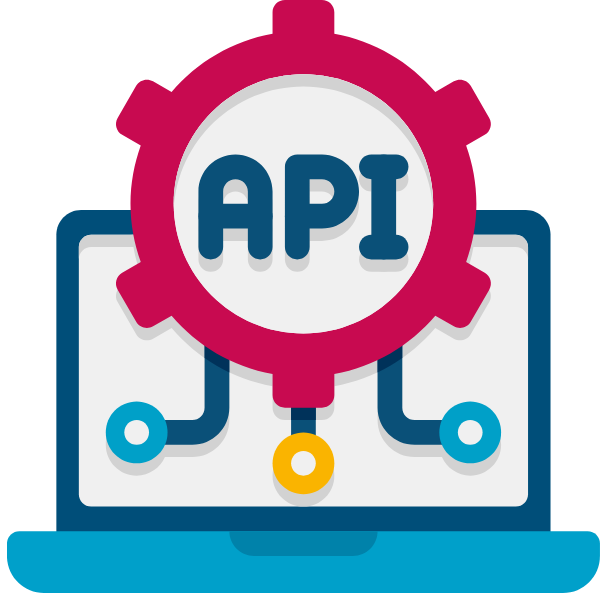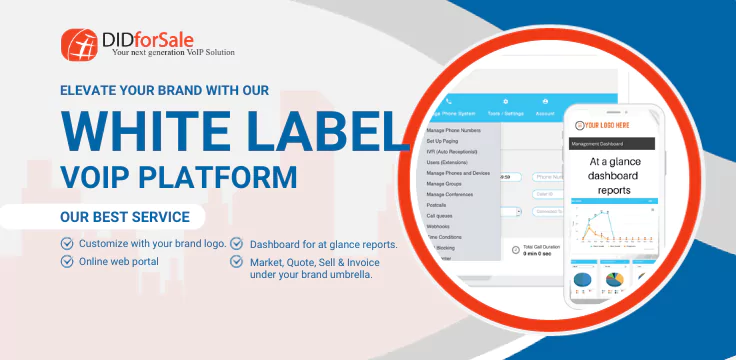In the rapidly evolving business landscape, call centers play a crucial role in providing seamless customer service. Companies are constantly seeking ways to enhance their communication infrastructure. One of the most effective solutions for optimizing call center operations is integrating a Voice API. By leveraging voice call integrations, businesses can improve efficiency, enhance customer experience, and streamline their processes.
What is a Voice API?
A Voice API (Application Programming Interface) allows businesses to make, receive, and manage phone calls through software applications. It facilitates seamless API integration into existing systems, enabling companies to enhance their telephony services without the need for complex infrastructure. Call centers can utilize a Voice API provider to automate processes, reduce operational costs, and improve agent productivity.
Modern call centers require agility and adaptability, and a Voice API delivers these capabilities by integrating with CRM systems, call analytics tools, and customer support software. Unlike traditional phone systems, which often require costly hardware and maintenance, APIs allow companies to scale their operations with cloud-based solutions.
Key Benefits of Voice API Integration in Call Centers
1. Enhanced Customer Experience
With API integration, call centers can offer faster and more personalized customer interactions. Features such as IVR (Interactive Voice Response), automated call routing, and real-time voice analytics help in improving response times and customer satisfaction.
- Personalized Call Routing: Calls can be intelligently routed based on customer history and preferences.
- Automated Responses: Reduce wait times by providing automated answers to frequently asked questions.
- Real-Time Transcriptions: Improve call quality by analyzing conversations and ensuring compliance with service standards.
- Speech Recognition: Advanced AI-driven speech recognition helps in understanding customer intent, leading to better query resolution.
By leveraging AI-powered automation, call centers can drastically reduce the need for human intervention in routine inquiries while allowing agents to focus on complex customer needs.
2. Cost-Effective Communication
Traditional phone systems can be costly to maintain and upgrade. Voice API solutions eliminate the need for expensive hardware and infrastructure.
- Cloud-Based Operations: Save on maintenance and equipment costs by using a cloud-based Voice API provider.
- Pay-As-You-Go Model: Most providers offer flexible pricing models, allowing call centers to scale operations cost-effectively.
- Lower Call Charges: By utilizing SIP trunking and VoIP solutions, businesses can significantly reduce call expenses.
- Reduced IT Maintenance: Since APIs operate on cloud-based platforms, businesses no longer need to allocate extensive IT resources for maintenance.
Cost efficiency is one of the primary reasons businesses adopt Voice API integration, making communication more affordable and accessible.
3. Improved Agent Productivity
A call integration API can automate repetitive tasks, enabling agents to focus on more critical customer interactions.
- Automated Dialing: Use features like click-to-call and auto-dialing to eliminate manual dialing and save time.
- Call Recording & Analysis: Monitor agent performance and provide training based on real-time call analytics.
- Seamless CRM Integration: Integrate with existing CRM systems to provide agents with instant access to customer data.
- Workforce Optimization: AI-powered analytics provide insights on call volume trends, helping managers allocate resources more effectively.
With features like automated call summaries and AI-driven sentiment analysis, call centers can increase productivity and enhance decision-making processes.
4. Scalability and Flexibility
As businesses grow, their communication needs evolve. Voice API solutions offer unmatched scalability and flexibility to meet these changing demands.
- Handle High Call Volumes: Scale up during peak seasons without worrying about infrastructure limitations.
- Multi-Channel Support: Integrate voice with other communication channels like SMS, chat, and email for a unified customer service approach.
- Customizable Features: Develop tailored solutions based on specific business requirements.
- Geographic Expansion: Call centers serving international customers can use Voice API providers to obtain local phone numbers, reducing costs and improving customer trust.
The ability to adapt to market demands and operational needs makes Voice API integration a valuable asset for businesses of all sizes.
5. Enhanced Security and Compliance
Security is a top priority for call centers handling sensitive customer information. A reliable API provider ensures compliance with industry regulations.
- End-to-End Encryption: Secure customer calls and prevent data breaches.
- Call Masking: Protect customer privacy by ensuring personal phone numbers are not exposed.
- Regulatory Compliance: Adhere to industry standards such as GDPR, HIPAA, and TCPA.
- Fraud Prevention: Advanced fraud detection mechanisms prevent fraudulent activities such as call spoofing and phishing.
With data security being a growing concern, Voice API integration offers built-in protection mechanisms to ensure safe and compliant communication.
Related Blog
Voice API: 5 Key Features to Look for in a Provider
How to Choose the Right Voice API Provider?
Selecting the right API provider is essential for ensuring seamless integration and maximum benefits. Here are a few factors to consider:
- Reliability & Uptime: Choose a provider with a high uptime guarantee to avoid service disruptions.
- Ease of Integration: Look for APIs that offer detailed documentation and developer-friendly features.
- Scalability: Ensure the solution can scale as your business grows.
- Customer Support: Opt for a provider that offers 24/7 technical support.
- Competitive Pricing: Compare pricing models to find the most cost-effective solution.
- Feature Set: Consider providers that offer advanced features such as AI analytics, speech recognition, and multi-channel support.
Before selecting a provider, businesses should conduct trials or pilot projects to assess compatibility and functionality.
Real-World Applications of Voice API in Call Centers
Many leading businesses have successfully implemented Voice API solutions to improve their operations. Some common use cases include:
- E-Commerce Customer Support: Online retailers use Voice API to handle order inquiries, delivery tracking, and return requests.
- Healthcare Call Centers: Hospitals and clinics use Voice API integration to manage appointment scheduling and prescription refills.
- Banking & Financial Services: Banks implement Voice API for secure account verification and automated customer assistance.
- Travel & Hospitality: Airlines and hotels use Voice API to handle booking confirmations and customer inquiries efficiently.
By integrating Voice API, businesses across various industries have improved their communication systems, leading to better customer experiences and operational efficiency.
Wrapping Up
Integrating a Voice API is a game-changer for call centers looking to enhance efficiency and customer experience. From reducing operational costs to improving agent productivity and ensuring security, the benefits of API integration are undeniable. Partnering with a trusted Voice API provider can help businesses unlock their full potential and stay ahead in the competitive landscape.
To learn more about how a DIDforSale Voice API provider can transform your call center operations, check out our product page.







